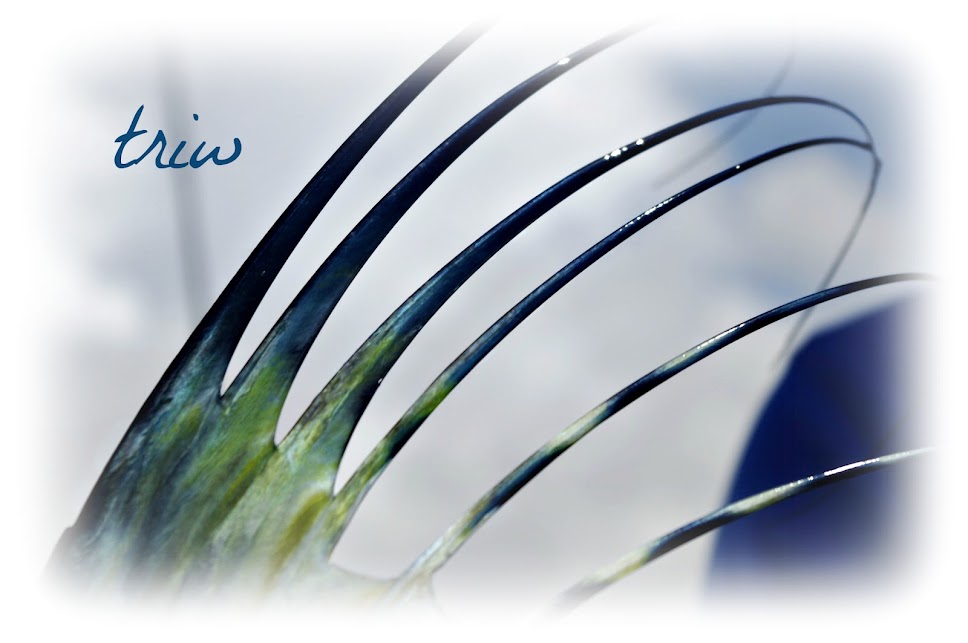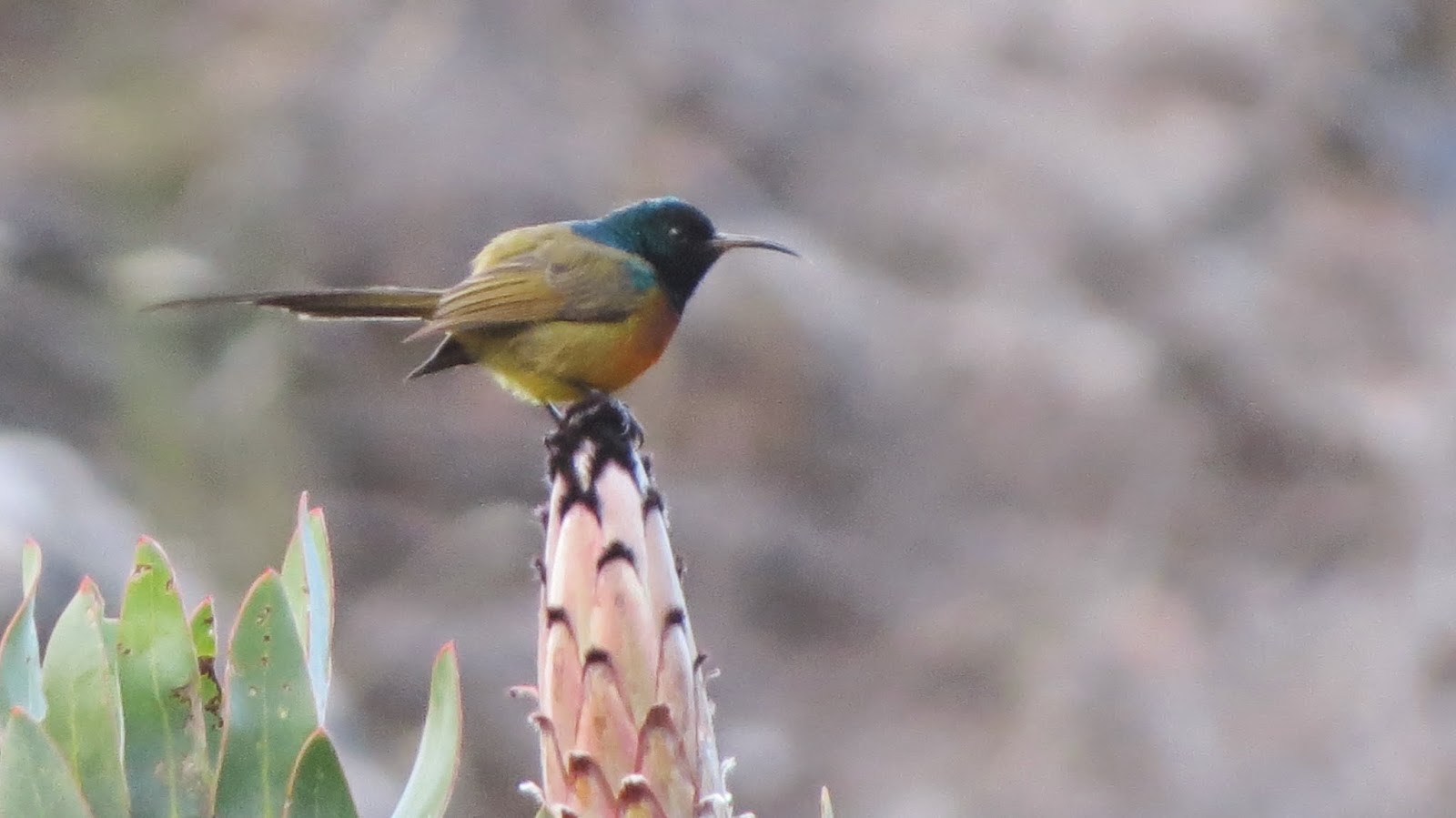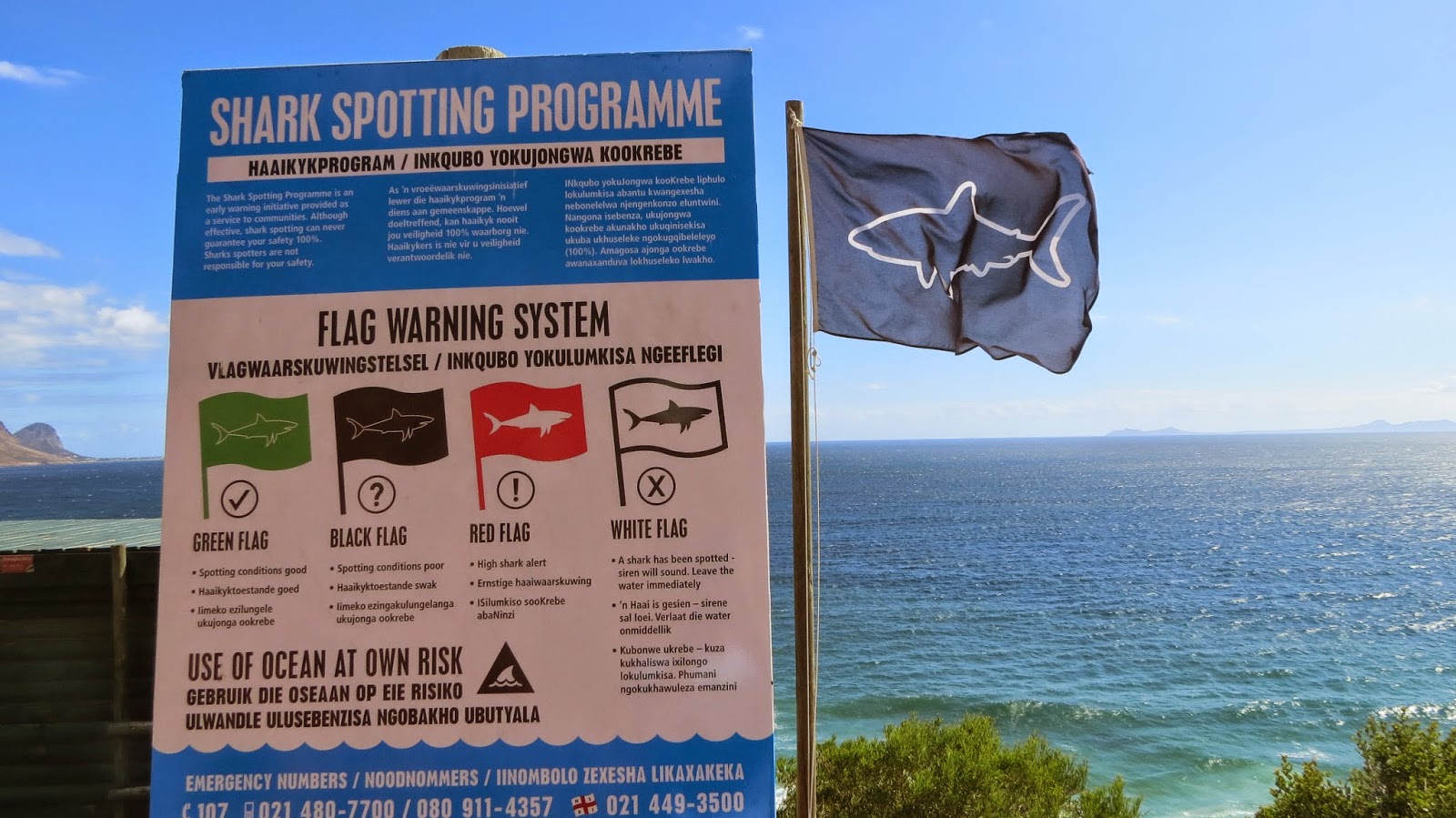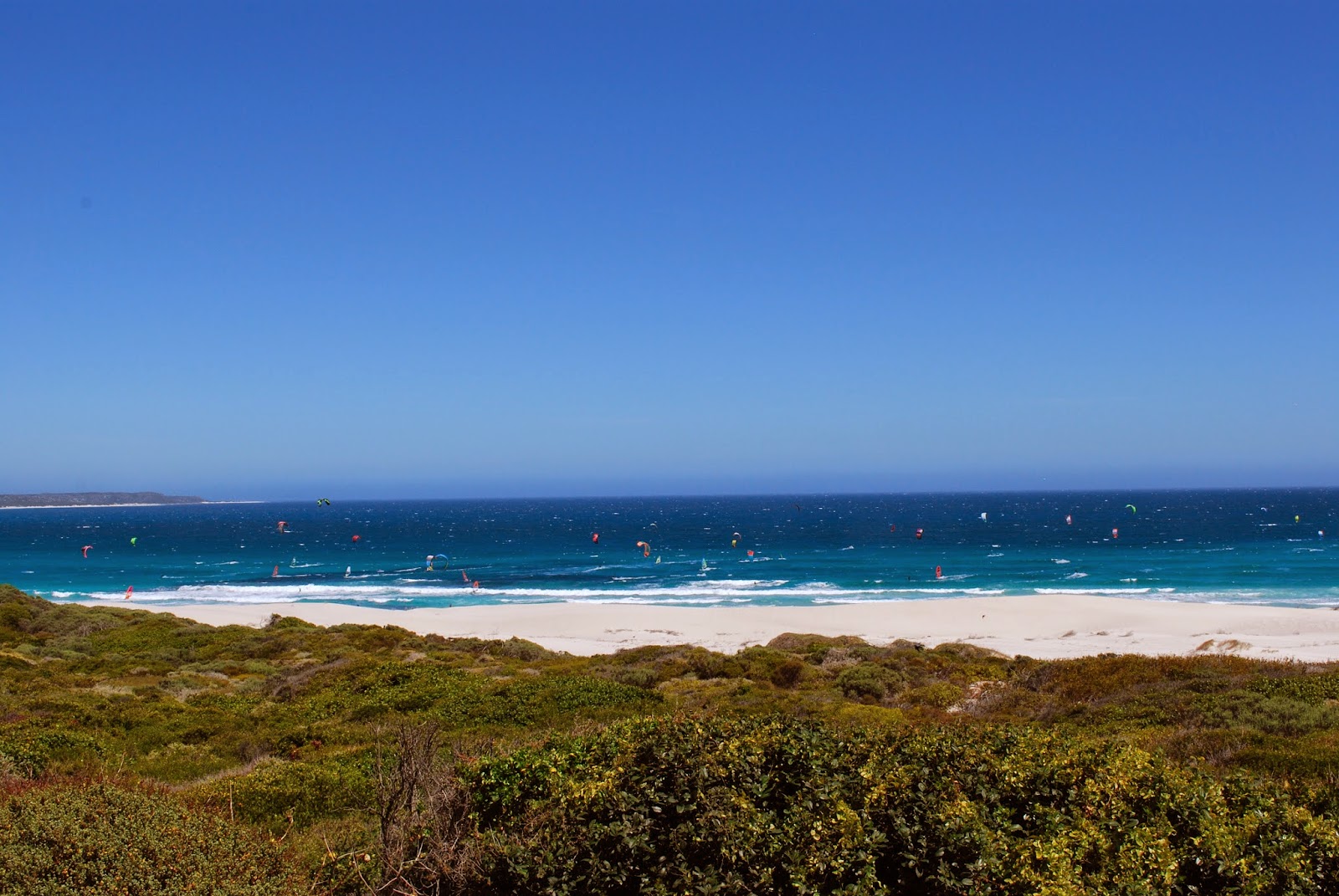We've been living in Tanzania for three years, and have saved a long break for a trip to Cape Town that we finally cashed in a few weeks ago. Last summer on our road trip through southern Africa, we met some Capetonians in Zambia and hit it off over mutual interests, including fly fishing. They crashed with us for a few days in Dar es Salaam towards the end of their journey, and they repaid the favor by generously hosting us in the city for an entire week.
Oliver gave me the only fly that produced tigerfish for me during my day on the Zambezi, and offered to take me fishing on the trout streams near Cape Town when we finally visited. It was well worth the wait.
I usually only get to fish for trout once a year: during our visits home in the winter or summer. All of that is going to change when we repatriate in June. I've already tied a box of trout flies in anticipation. I was extremely excited for this trip for trout in Cape Town.
There can't be a more stunningly situated city than Cape Town. In the shadow of Table Mountain, Cape Town sprawls along the flats and wraps around the mountains to the coast. Behind Table Mountain, more mountain ranges rise up from the fynbos, the habitat unique to the cape of South Africa, with more than 6,200 plant species found nowhere else on Earth. It's a kind of bizzaro-world for those of us used to temperate forests, and reminds me of Dr. Seuss.
Cascading down those ranges are clear streams that were stocked with trout a hundred years ago. Naturally producing populations of browns and rainbows inhabit many of the streams and provide a worthy pursuit for the Cape Piscatorial Society, as well as other, more remote streams that shelter endemic yellowfish.
We parked in a valley and hiked an hour in to our assigned beat for our day of fishing. The water was low and clear with a golden hue, peaking from amidst the light green and yellow fynbos covering the mountainsides. We spotted some endemic bird species, the cape sugarbird, orange-breasted sunbird, and the cape grassbird during our hike, and noticed a rufous-breasted sparrowhawk rolling in the confines of the canyon. We kept an eye out for sign of one of Africa's rarest cats, the Cape Leopard, knowing that seeing one of these small leopards is incredibly unlikely. Camera traps seems to offer the only evidence of their residence.
We rigged up 3wts streamside and Oliver missed a rainbow rising to his black parachute Adam's on his first cast. It was going to be a good day.
We worked our way upstream slowly, fishing the pocket water between boulders, under overhanging branches and along seams in the current, missing a few small fish. The canyon was cold and had not received the morning sun yet. We took turns fishing the most likely spots and watched each other work the water. This is my favorite kind of fly fishing.
lots of rainbows is this picture
We continued to work our way upstream. In the slow slackwater between riffles, schools of rainbows stood in the current. That shadows of our 6x tippet on the still water's surface sent them careening around the subsurface boulders. Our best chances were in the rougher water, where they didn't have a chance to think about it.
We tried spotting for each other from high vantage points but the fish were too wary.
I finally landed my first fish from a tiny riffle between two boulders. We continued upstream now with the sun illuminating the inner canyon.
A black size-16 Klinkhammer with an iridescent body elicited strikes on many casts from smaller, uneducated fish.
In a deep, shaded pool that we crept upon, a 16-18" bow sipped my fly after meandering up from depth. I set and felt nothing, then had the same fish nose the fly immediately upon relanding the fly. There was not to be a 3rd chance, even after resting the pool and fishing it during our descent, hours later.
We landed a few smaller rainbows and missed a few aggressive takes. The fishing was tough, and cutting your teeth on streams like this would forge you into a technically competent fly angler in a very short time. I look forward to showing Oliver what the PA/MD/NY area has to offer when they visit in the years ahead.
It was an amazing day of trout fishing in a unique setting, a day that I won't forget.
The rest of the trip was just as spectacular. We hiked Lion's Head to orient ourselves upon arriving in the city.
The black flag means the spotting conditions are poor, and anyone in the water should know that there might be a shark nearby, and it can't be seen. I think this is the scariest of the warnings.
Then, we hiked Table Mountain up Platteklip Gorge.
We drove down to Cape Point along the stunning coastal highway, stopping in small towns along the way, enjoying the vistas towards Antarctica, and visiting some african penguins.
We journeyed inland to wine country in Franshhoek, where I finally learned to tell the difference between a red and a white.
To cap off the trip, Oliver and his wife, Erika, invited my wife and I to visit their family beach house, built 60 years ago by Oliver's grandfather on a huge piece of land he donated to the World Wildlife Fund upon his passing, in Hangklip, two hours southeast of Cape Town.
The waters offshore team with white sharks and seals, whales and seabirds, kelp and a penguin colony. We hiked through the fynbos behind the cabin, noting more endemic birds like the cape rock thrush and the cape robin-chat. We also visited a crack in a rock that has been home to generations of elephant shrews over the past 30 years. We drank some beers and cooked some meat while the sun set over the Cape Point peninsula in the distance. It was an awesome and relaxing end to a great trip.





































1 comment:
wonderful photo trip, thank you. I grew up in Cape Town and learnt to flyfish on those little Cape streams.. definitely tough.
That Hangklip house is stupendous.
Post a Comment